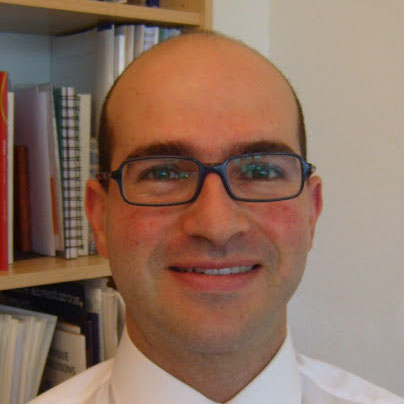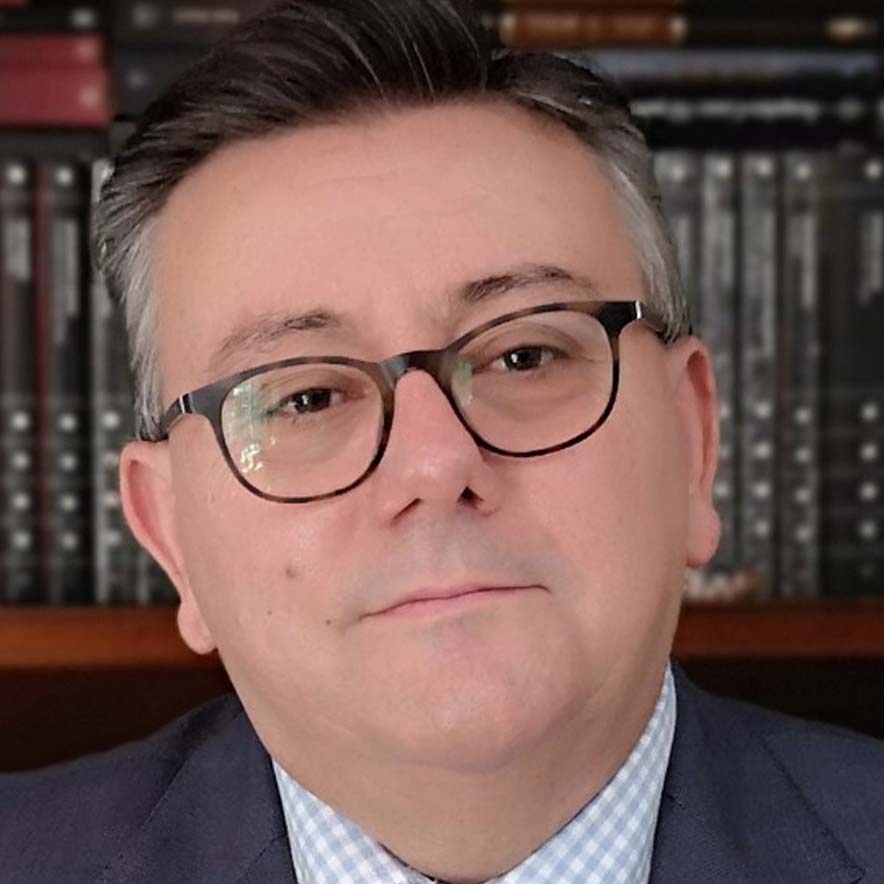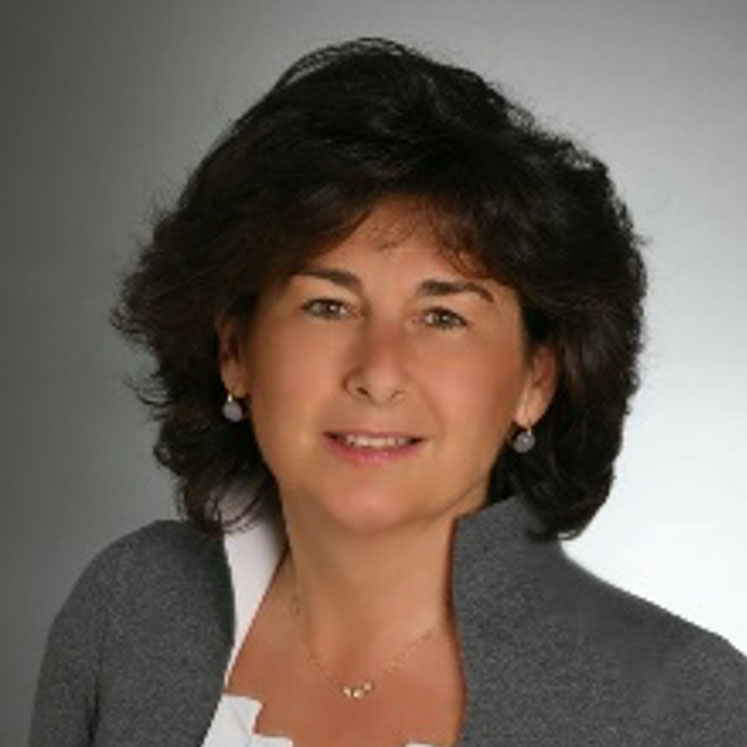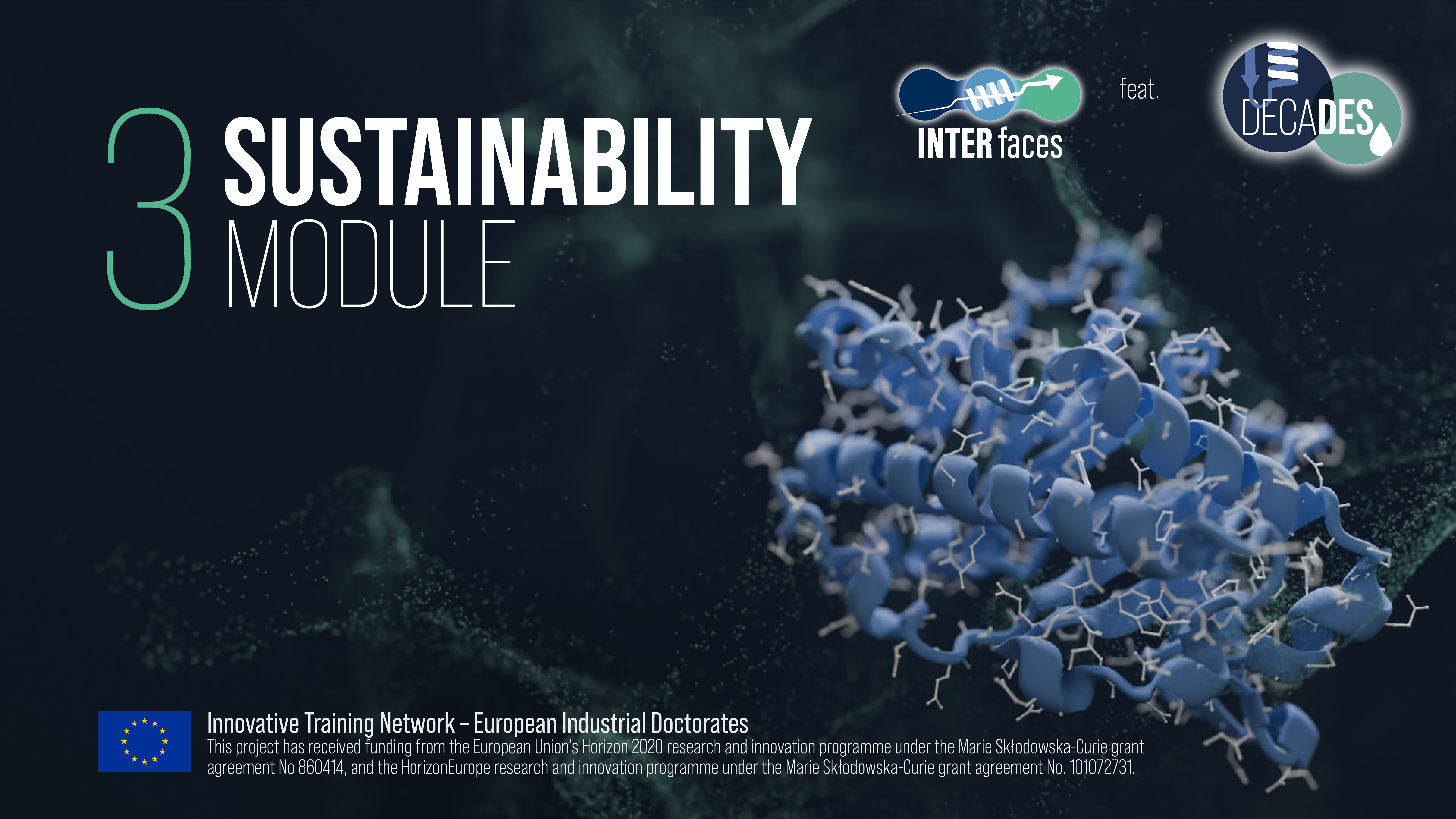Tailored Materials and Enzymes for Industrial Processes – Sustainability Module
Mulai kursus: 28. Januari 2026
Tailored Materials and Enzymes for Industrial Processes – Sustainability Module
Dr. habil Pablo Domínguez de María
Prof. Dr. Selin Kara
Prof. Dr. Andrés R. Alcántara
Prof. Dr. Lucia Gardossi
PhD Laura-Carlota Paz
Klasifikasi ilmiah:
Mulai kursus: 28. Januari 2026
Tailored Materials and Enzymes for Industrial Processes – Sustainability Module
Dr. habil Pablo Domínguez de María
Prof. Dr. Selin Kara
Prof. Dr. Andrés R. Alcántara
Prof. Dr. Lucia Gardossi
PhD Laura-Carlota Paz
-
Ruang lingkup: 8 unit
-
Waktu yang diperlukan: 1 jam per minggu
-
Peserta saat ini: 2
-
Lisensi: CC BY-SA 4.0
-
Mulai kursus: 28. Januari 2026
-
Akhir kursus: -
-
Status saat ini: Kursus yang akan datang
-
Bahasa yang tersedia:
Rincian kursus
Informasi umum tentang kursus
The iMooX-course “Tailored Materials and Enzymes for Industrial Processes – Sustainability and Industrial Applications” focusses on how biocatalysis can be implemented at industrial scale, and will show how enzymatic solutions can become environmentally-friendly and industrially relevant at the same time. The original MOOC contained two major Topics which have in 2026 been extended with new content as a bonus. The first Part, covering four lectures, will provide the fundamentals of sustainability, discussing from environmental metrics to the use of biogenic resources and some concepts related to bioeconomy. The first two lectures will show how the environmental impact of biocatalytic reactions can be measured with meaningful and easy-to-implement metrics, and how a broader analysis can be made by implementing Life-Cycle-Assessments (LCA) strategies. The other two lectures will explain the current transition from petroleum-based chemicals to a new paradigm based on biomasses as feedstocks.
The second Part, composed of two lectures, will show different biocatalytic industrial cases, emphasizing in each case why enzymes provide an advantage, based on selectivity, mild reaction conditions, versatility in different reaction media, etc. Overall, a broad perspective on the possibilities of biocatalysis at industrial scale will be given. The Units will be completed with some interviews between young scientists and industrial biotechnology leaders and experimental videos.
The new “supplementary/bonus” content has been added in two units. These have been added by the members of DECADES (2023-2027) a HorizonEurope MSCA Doctoral Network. DECADES took over the role as flag bearer for the three MOOCs when the INTERfaces (2020-2024) project time ended. The doctoral candidates of DECADES have added their view on biocatalysis and its possible benefits for a more sustainable chemical Industry in personal interviews. Furthermore, Prof. Andrés R. Alcantara kindly added a lecture on “Biotransformations in Green Solvents” contributing to the educational content of the MOOC and a new experimental video. After each core lecture, a quiz must be completed and passed to successfully end the corresponding Unit. The course is not only taught for students at BSc. and MSc. study levels but also to attract attention from industrial chemists interested in applying enzymes to synthesize chemicals for our daily use.
While this course can stand alone, it has been designed as part of a three MOOC series of “Tailored Materials and Enzymes for industrial Processes”:
- “Tailored Materials and Enzymes for Industrial Processes – Basic Module”
- “Tailored Materials and Enzymes for Industrial Processes – Advanced Module”
- “Tailored Materials and Enzymes for Industrial Processes – Sustainability Module”
We highly recommend attending all these three MOOCs in the intended order for the best learning experience.

The first version of this course has been developed and realized in the frame of the project INTERfaces - Heterogeneous biocatalysis reaction cascades training network (H2020 Marie Skłodowska-Curie Actions (MSCA) Innovative Training Networks (ITN) – European Industrial Doctorates (EID)). Additional content has been developed and realized in the frame of the project DECADES - Design of CAtalytic processes with Deep-Eutectic-Solvents (HorizonEurope Marie Skłodowska-Curie Actions (MSCA) Doctoral Networks (DN)).
This project has received funding from the European Union’s Horizon 2020 research and innovation programme under the Marie Skłodowska-Curie grant agreement No 860414, and the HorizonEurope research and innovation programme under the Marie Skłodowska-Curie grant agreement No. 101072731.

Materi kursus
- Topic 1: Green Chemistry metrics for biocatalytic reactions and broader Life-Cycle-Assessment (LCA) strategies
- Topic 2: Bioeconomy, biogenic resources and change of paradigm.
- Topic 3: Industrial Biocatalysis. Case studies and motivation for using enzymes.
- Topic 4: Biotransformations in Green Solvents
- Topic 5: Why is Biocatalysis relevant for a sustainable future? Q&A session with Doctoral candidates
Tujuan pembelajaran
After completing the MOOC, participants will be able to:
Understand why measuring the sustainability of a catalytic reaction is an important topic nowadays.
Know how the greenness of (bio)catalyzed reactions can be quantitatively assessed, and how process conditions can be improved to reach more environmentally-friendly syntheses.
Understand the different process boundaries to analyze environmental metrics, and how life-cycle-assessments can be implemented to cover catalytic reactions holistically.
Learn the concept of Circular Bioeconomy, and how bio-based materials are being implemented at industrial scales.
Get knowledge on how enzymes can be implemented at industrial level, and learn about examples of reactors and case studies, from gene to process design.
Persyaratan
Basic knowledge of biochemistry, organic chemistry, and chemical reaction engineering is expected. Completion of MOOC: “Tailored materials and Enzymes for Industrial Processes - Basic Module” and “Tailored materials and Enzymes for Industrial Processes - Advanced Module” is recommended
Jadwal kursus
The MOOC is divided into 8 units. Every week one unit is published. The first six units contains at least one lecture video, accompanying transcripts, sometimes bonus material in the form of an experimental video or an industrial interview and a self-assessment quiz to check the learning goals. The last two units are focused on an additional lecture and also on interviews with doctoral candidates of the scientific field.
Synchronous phases are not planned so that learners can work through content at their own pace.
Sertifikat
For actively participating in the course you will receive an automatic certificate which includes your username, the course name as well as the completed lessons. We want to point out that this certificate merely confirms that the user answered at least 75% of the self-assessment questions correctly.
Lisensi
This work is licensed under Creative Commons - gleiche Weitergabe 4.0 International (CC BY-SA 4.0)
Instruktur Kursus

Dr. habil Pablo Domínguez de María
Partner in INTERfaces & DECADES; Sustainable Momentum, SL, Responsible for this MOOC.

Prof. Dr. Selin Kara
INTERfaces & DECADES coordinator; Prof. at Institute of Technical Chemistry, Leibniz University Hannover, Germany; Prof. at the Department for Biological and Chemical Engineering, Aarhus University, Aarhus, Denmark

Prof. Dr. Andrés R. Alcántara
Prof. at the Complutense University of Madrid, Spain; Member of DECADES

Prof. Dr. Lucia Gardossi
Prof. at University of Trieste, Trieste, Italy; member in INTERfaces

PhD Laura-Carlota Paz
The development of this MOOC has been supported by Laura-Carlota Paz, PhD, in her capacity as Project Manager of INTERfaces. Her tasks lay in coordination, facilitation, quality control and setup of the MOOC courses in the iMooX online system.
Mitra
INTERfaces – Heterogeneous biocatalysis reaction cascades training network H2020 Marie Skłodowska-Curie Actions (MSCA) Innovative Training Networks (ITN) – European Industrial Doctorates (EID)
{mlang other}12 Non-academic partners ranging from high-tech SMEs to large producing companies and 11 academic institutions offer an intersectoral and interdisciplinary environment to provide 14 PhD candidates with outstanding employability profiles for the European Biotech Sector. Together, they build this MOOC to widen the knowledge in the field of biocatalysis and to give students the chance to learn from an excellent board of teachers from different faculties and backgrounds.
DECADES - Design of CAtalytic processes with Deep-Eutectic-Solvents
HorizonEurope Marie Skłodowska-Curie Actions (MSCA) Doctoral Networks (DN).
8 Non-academic partners ranging from high-tech SMEs to large producing companies and 5 academic institutions offer an intersectoral and interdisciplinary environment to provide 10 PhD candidates with outstanding employability profiles for the European Biotech Sector. The PhD candidates contributed to this MOOC to distribute the knowledge in the field of biocatalysis and to give students the chance to hear from their peers what is so interesting about biocatalysis.

Graz University of Technology


